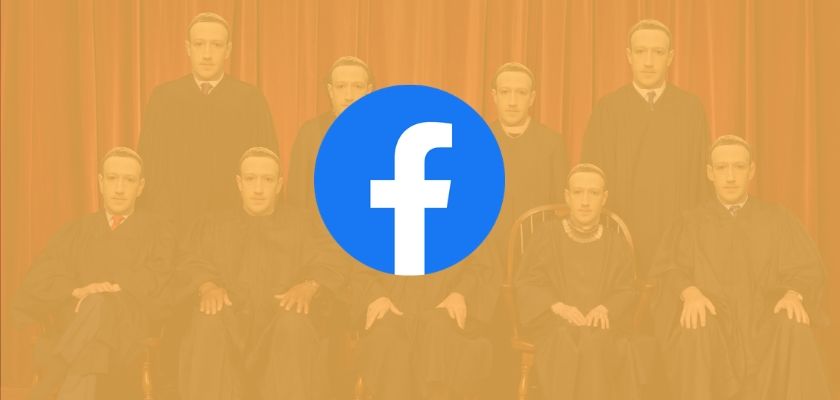Not that long ago, there was speculation that Facebook CEO Mark Zuckerberg might be preparing for a political career and even a presidential bid.
But now it seems more likely Zuckerberg might take the simpler route – organize his vastly rich and powerful company into a “country” of sorts, where he is already king.
Facebook and a number of its partners recently announced the launch of what will effectively be the social media platform’s own (crypto) currency. Some see it as the first step toward the behemoth becoming an “independent entity.”
Those comments, made only half-jokingly in some quarters, are unlikely to die down now that Facebook said it was setting up its Oversight Board for Content Decisions.
The announcement over on the company blog even came with an illustration that looked like a distorted UN flag.
The website specifies as the Oversight Board will deal with policing content, it will essentially be a “Supreme Court” for just that purpose. The Board, that will have 40 or more members, will review decisions to censor content believed to be “hate speech”, breaches of privacy or safety, enabling harassment, and the like.
In the blog post, Facebook maintains that it is constantly seeking to find a balance between censoring content it finds unacceptable, and provide a platform for free speech.
But when it comes to the Board, there are bumps in the road, such as the chronic lack of trust in Facebook, regardless of what initiative the company may be undertaking.
For example: who will appoint the members of the Board? A recent research done by the company among its users worldwide showed that quite a few don’t think it should be Facebook itself, citing such concerns as “perpetuation of bias.”
And the bureaucracy in the new “country” is just getting complicated: if not Facebook, then an “intermediate ‘selection committee’ would pick the Board (…) but would still leave Facebook with the task of ‘picking the pickers’.”
That was the alternative idea offered in the study, but it wasn’t very well liked, either.






















